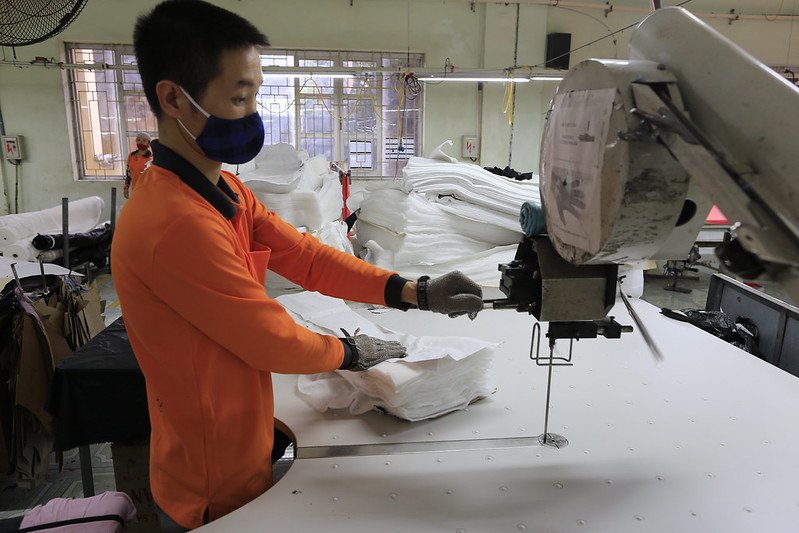The Covid-19 pandemic has led to dire global economic consequences, including a significant loss of jobs across the world, worsening an already precarious situation for the world’s workers. Policy-makers face major challenges in protecting jobs. Although development finance institutions (DFIs) are actively supporting the creation of a large number of jobs and improving their quality, they could do more to ensure that recent progress towards economic development is not completely wiped out.
The opportunities for DFIs to support businesses
The pandemic has brought about two types of economic shocks. The first is a demand shock that has undermined the ability of firms to sell products and services. The second is a supply shock for firms which are highly integrated into global value chains and have faced difficulties obtaining the inputs they require due to movement restrictions. This dual shock has created cash flow and solvency issues for firms and tundermined heir ability to create quality jobs. The United Nations Economic Commission for Africa (PDF) has emphasised that addressing liquidity shortages, including through a Liquidity and Sustainability Facility, is crucial to the economic resilience of low- and middle-income countries (LMICs), especially for small and medium-sized businesses.
In many countries, domestic governments and/or donors have created schemes to cushion the impact of the crisis on these firms. However, the preliminary evidence suggests that these schemes have not reached all firms equally. A forthcoming World Bank report highlights that only 4.5% of firms in low-income countries (LICs) have been able to access recovery support measures.
Many LICs and lower middle-income countries (MICs) do not have social insurance systems. This means that many employees in the formal sector, where DFI investments tend to create jobs, will not have a government-sponsored safety net available if they are temporarily laid off or working reduced hours. Moreover, current social protection systems are unable to adequately protect jobs in the informal sector. Labour markets in the poorest countries in particular will face major challenges, including the move towards digitalisation and need for formalisation.
DFIs are already building back better…
DFIs are working to maintain the jobs previously created by investee companies while also strengthening investees’ businesses to address short-term resilience issues. Specifically, DFIs are providing more investment capital, renegotiating terms on loan repayments, and providing technical assistance. DFIs are using innovative technical assistance programmes to support their clients to implement work-sharing schemes, effective employee retrenchment policies, improved employee safety, and adapted business operations.
As the Covid-19 crisis continues, DFIs should also consider extending the moratorium on debt repayments in extreme cases, and instead engage directly with clients to create bespoke support packages and create a “bouncing back better” facility (PDF) to support companies through these difficult times.
…but DFIs could do more to build resilience for high quality job creation
Although the shape of the global economic recovery remains uncertain, DFIs must consider how they will support their clients after the worst of the pandemic has passed. It is clear that DFIs need to help investees to diversify their suppliers, markets and operational capacity to insulate themselves from future shocks.
This crisis has highlighted just how integrated global value chains have become, but also how vulnerable modern business practices are to the barriers of the movement of goods and services. DFIs should encourage investees to build vertical linkages in their supply chains, and in some cases, to focus more on local linkages than before the pandemic. They should also support investees to carry more inventory to avoid input shortages.
Digitalisation and adapting operations to manufacture health products have also been identified as other avenues for investees to ‘build back better.’ DFIs have shared examples of investee businesses moving their work online and changing the way customers receive their product. These are innovations that should continue as they decrease investees’ vulnerabilities to future demand shocks. For DFIs, new platforms that can facilitate these types of business interactions could be a significant investment opportunity and a way to build more resilient markets and may also provide an opportunity for DFIs to reach those working in the informal sector.
Lastly, DFIs should also work to repurpose existing manufacturing clients – or invest in new ones – to address the high demand for health-related goods needed to respond to the Covid-19 pandemic and other crises that will no doubt arrive in the future.
This blog is based on a webinar on supporting job protection during and after the pandemic. It was the first of three webinars hosted by ODI looking at how DFIs and their investees are adapting their operations in the face of the Covid-19 crisis. The other two webinars address DFI investments in healthcare and how DFIs can tackle liquidity issues faced by investees.
This project is supported by the members of European Development Finance Institution and led by CDC Group, DEG, and Proparco.


